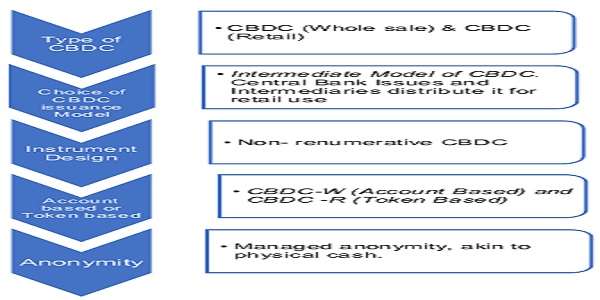Press play to listen to this article
Crypto’s Wild West era may be coming to an end.
According to the Financial Stability Board (FSB), a global financial standard-setter, most of the cryptocurrency market should be subject to the same tough rulebook that governs traditional finance.
The FSB, which was born in the wake of the 2008 financial meltdown to stave off further shocks, will propose the plan to rein in crypto to finance ministers and central bankers from the Group of 20 industrialized countries gathering in Washington next week, the plan’s chief architect, Steven Maijoor, told POLITICO.
“A lot of the activities in crypto assets and crypto assets markets resemble activities in the traditional financial system and therefore we take the approach: Same activity, same risk, same regulation,” Maijoor, who sits on the Dutch central bank’s governing board and oversees banking supervision, said in Prague in early September.
The move is set to put major crypto trading platforms on red alert, coming as the U.S.Securities and Exchange Commission seeks to impose securities regulation on cryptocurrencies and as the EU prepares its own rules for digital markets.
More broadly, the FSB’s work on digital assets is likely to act as a cold shower for crypto currencies that seek to expand their services without complying with regulations.
Regulators fear the lack of investor safeguards could see volatility in cryptocurrency markets spilling over into the traditional finance sector, as banks and money managers venture into the market.
Some $2 trillion of the market’s value has evaporated since its highs of November last year, triggering corporate collapses and exposing scams that left millions of crypto investors penniless.Risks within the crypto markets are still contained.But that could quickly change and threats could spill over to financial markets from various channels, according to the European Securities and Markets Authority.
Maijoor will present G20 policymakers with draft recommendations that he’s been developing with a team ofglobal regulators within the FSB since April with the view of securing financial stability as crypto goes mainstream.Countries around the world will need to decide whether new rules are needed for novel arrivals within the crypto market, such as digital wallets.The rest should be captured by new or existing financial rules.
“This is not only related to securities,” said the 58-year-old, who used to lead the EU’s securities regulator before getting a job at De Nederlandsche Bank.
“There are also already some crypto activities that are captured by anti-money laundering laws and regulations and we can observe that also, in that case, there is non-compliant behavior.”
The example of companies skirting around dirty money safeguards is an easy one for the Dutchman to give.His central bank in late April fined the world’s biggest crypto exchange, Binance, €3 million for offering services to Dutch citizens without having cleared the required Dutch safeguards against dirty money — gaining a competitive advantage against its rivals.
Binance objected to the fine in June.The Financial Stability Oversight Council, chaired by U.S.Treasury Secretary Janet Yellen, said the crypto industry needs to be brought to heel in several areas | Alex Wong/Getty Images
Ministers and governors will also get updated recommendations on how to regulate global stablecoins, digital tokens that are tied to national currency or a reserve of financial products to keep their value steady.The stablecoin update is separate from the crypto recommendations and came in response to Facebook’s failed bid to introduce a virtual currency for some 2.9 billion social media users around the world.
Maijoor’s work will be subject to consultation, so companies and countries will be able to suggest changes to what will become the global blueprint for supervising the market.Locking horns
The recommendations could embolden U.S.banking and markets regulators, which are increasingly taking the position that digital asset trading platforms and brokerages should follow existing regulations.
The Financial Stability Oversight Council, which is chaired by U.S.Treasury Secretary Janet Yellen and counts SEC Chair Gary Gensler and the heads of other federal agencies among its members, on Monday released a report that identified several areas where the crypto industry needs to be brought to heel.
“Crypto cannot exist outside of our public policy frameworks.That’s regardless of what [Bitcoin’s pseudonymous creator] Satoshi Nakamoto might have initially thought, or what market participants might say today,” Gensler said during Monday’s FSOC meeting.
Ripple and Coinbase, both major crypto exchanges that have locked horns with Gensler, will be hoping for a different outcome that involves new rules.
Coinbase has argued that crypto assets are more akin to commodities and that the SEC classifying them as securities is like putting a straitjacket on how the market could develop, especially considering those rules were developed in the 1930s.
The Commodity Futures Trading Commission would be a far better fit, according to the exchange.
“I think it is reasonable to assume that none of the authors who drafted these securities statutes from the 1930s … did so while thinking of a day when a decentralized, cryptographically-based, automated financial instrument would be adopted en masse by millions of people in the United States and around the world,” Coinbase’s chief policy officer, Faryar Shirzad, wrote in a blog in July.
Sam Sutton contributed reporting from New York.This article is part of POLITICO Pro
The one-stop-shop solution for policy professionals fusing the depth of POLITICO journalism with the power of technology
Exclusive, breaking scoops and insights
Customized policy intelligence platform .
